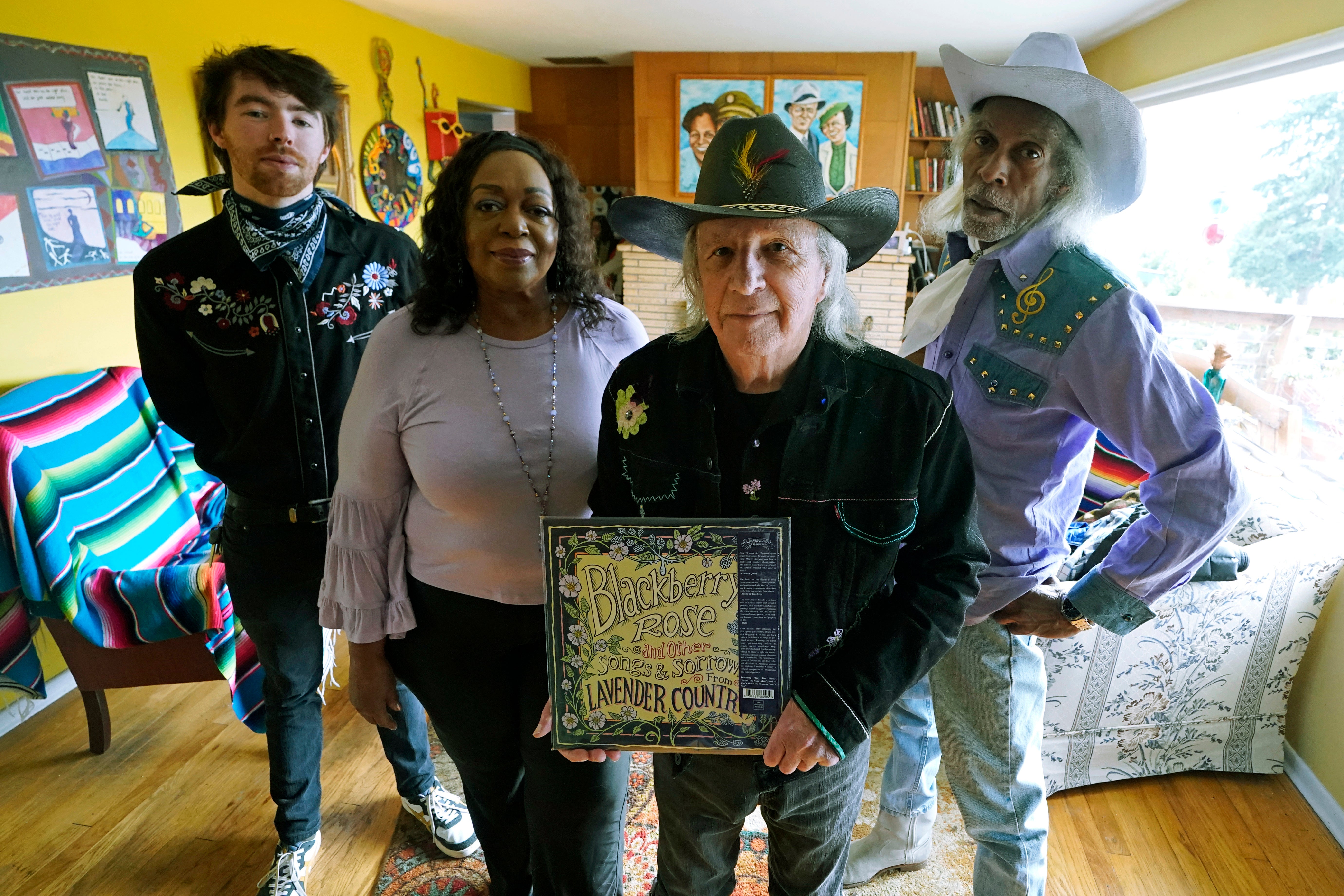Patrick Haggerty: Lavender Country frontman and pioneering gay country musician dies aged 78
Band’s self-titled debut album is widely considered to be the first openly gay country record

Your support helps us to tell the story
From reproductive rights to climate change to Big Tech, The Independent is on the ground when the story is developing. Whether it's investigating the financials of Elon Musk's pro-Trump PAC or producing our latest documentary, 'The A Word', which shines a light on the American women fighting for reproductive rights, we know how important it is to parse out the facts from the messaging.
At such a critical moment in US history, we need reporters on the ground. Your donation allows us to keep sending journalists to speak to both sides of the story.
The Independent is trusted by Americans across the entire political spectrum. And unlike many other quality news outlets, we choose not to lock Americans out of our reporting and analysis with paywalls. We believe quality journalism should be available to everyone, paid for by those who can afford it.
Your support makes all the difference.Country musician Patrick Haggerty has died aged 78, after suffering a stroke earlier this year.
The singer and guitarist was best known as the frontman of Lavender Country, a group whose 1973 self-titled debut album is widely regarded to be “the first openly gay country record ever released”.
His death was confirmed by record label Paradise of Bachelors, who reissued the band’s debut album in 2014.
“We are heartbroken to confirm that Patrick Haggerty, the visionary songwriter, dauntless activist, and irrepressible raconteur of Lavender Country, passed away at home early this morning, surrounded by family and friends,” they wrote on Tuesday (1 November).
“Patrick was never at a loss for stories or words, but for me, two words – his extraordinary father’s moral imperative – sum up much of what he stood for: ‘Don’t sneak.’ Thank you, Patrick, for kicking down the door and changing everything.”
Born in Washington in 1944 to a family of 10 children, Haggerty knew he was gay from a young age but was supported by his parents, with his father encouraging him to come out rather than remain closeted (known as “sneaking”).
In an interview with The Independent earlier this year, Haggerty said: “It’s hard to talk about my father without being emotional. He saw that I was gay very early on. He stepped up to the plate and said, ‘This is the child God gave me to love, so I’m gonna have to figure out a way to do it.’”
In high school, he was the equivalent of his school’s head cheerleader and after college he served with the Peace Corps, but was discharged in 1966 for being gay.
He then moved to Seattle, where he became involved with his local Gay Liberation Front chapter and worked as a gay rights activist, describing himself as “screaming Marxist b****”.
He then formed the group Lavender Country, with the band releasing their debut album in 1973. One track from the album, titled “Cryin’ These C***sucking Tears”, was played on Seattle radio that year, resulting in the dismissal of DJ Shan Ottey.
Enjoy unlimited access to 100 million ad-free songs and podcasts with Amazon Music
Sign up now for a 4 month free trial (3 months for non-Prime members)
Enjoy unlimited access to 100 million ad-free songs and podcasts with Amazon Music
Sign up now for a 4 month free trial (3 months for non-Prime members)
Speaking to The Independent, Haggerty said that the track had come about because he’d “wanted to write a song about straight white male supremacy and how f***ed up it is”.
While the group had many members in many cities, Haggerty was the only constant member.
Only 1,000 copies of Lavender Country were pressed in the original private run and sold in the underground gay press. Haggerty performed at Pride and other LGBTQ+ events for a couple of years before working as a social worker.

However, the album was later reissued in 2014, wherein it became part of the queer music canon.
A short documentary about Haggerty was released in 2016, titled These C***sucking Tears, while RuPaul’s Drag Race star and country singer Trixie Mattel covered the song “I Can’t Shake the Stranger Out of You” on her 2020 album.
Earlier this year, Haggerty released a follow-up album titled Blackberry Rose and Other Songs and Sorrows.
Discussing the state of modern country music, he told The Independent: “Corporate Nashville is responsible for the redneck image of country music and for creating a split between Black and white people. [But] Dolly [Parton], Willie Nelson or Garth Brooks, they’re not rednecks. They don’t believe that crap.
“Corporate Nashville has crafted this image and it’s falling apart on them right now. Black people and transgender people and gay people and lesbians and powerful women are kicking down the door and exposing corporate Nashville for the racist, sexist crap they’ve inflicted on everybody.”



Join our commenting forum
Join thought-provoking conversations, follow other Independent readers and see their replies
Comments